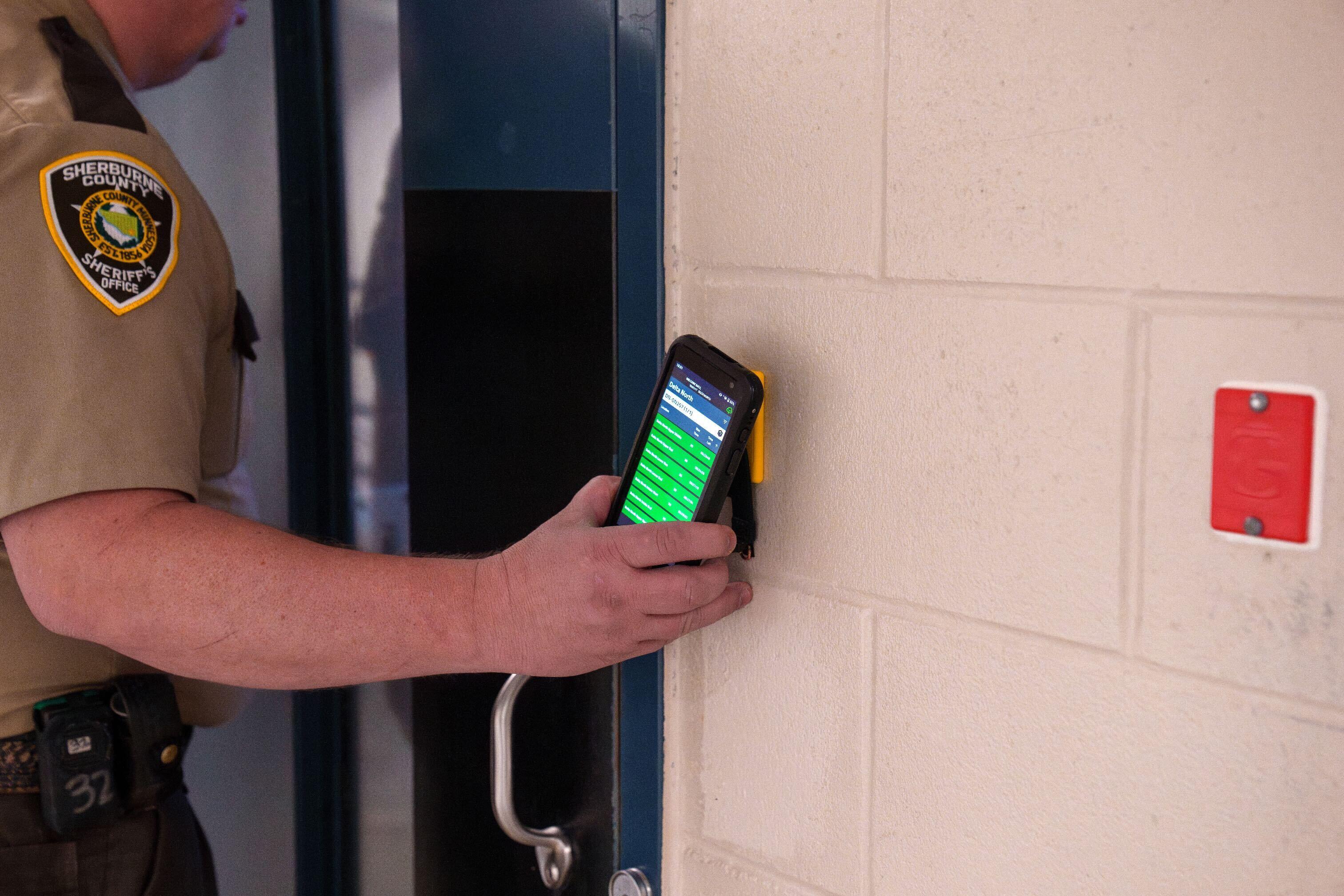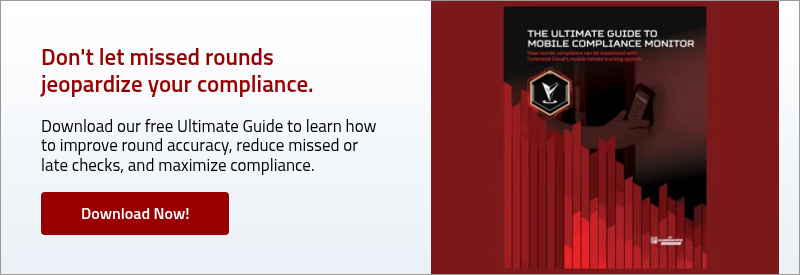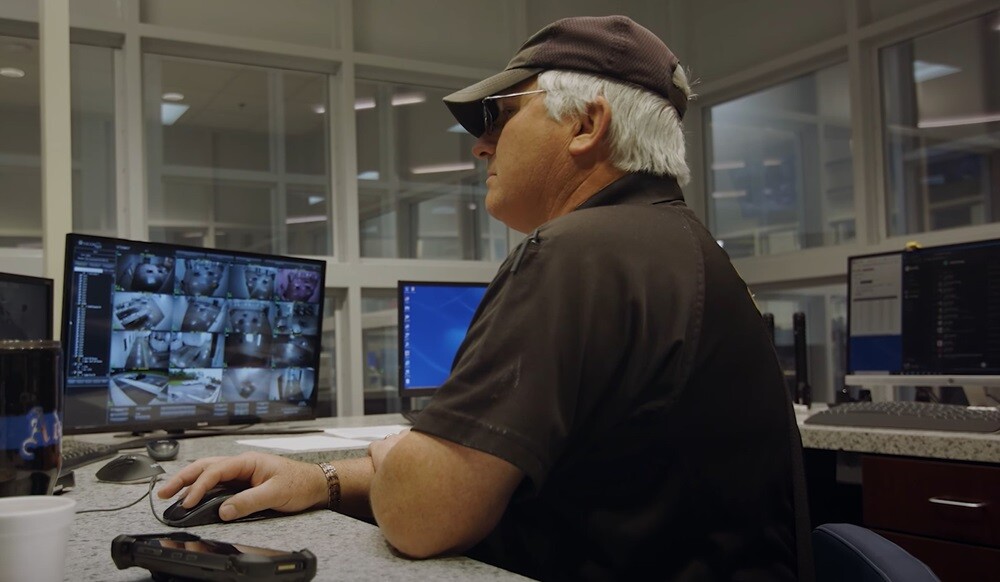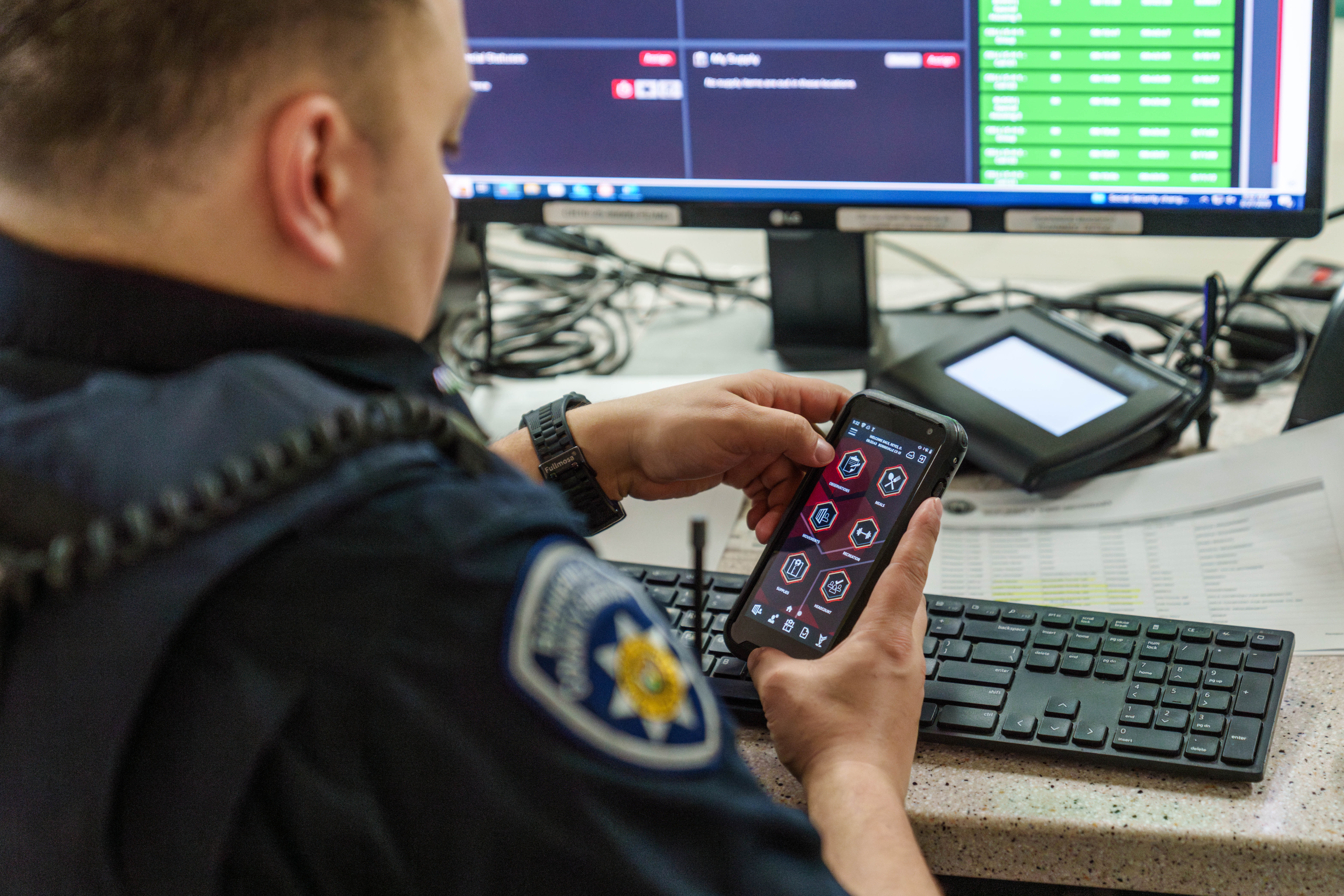GUARDIAN RFID often receives the question: Does Command Cloud alert staff when security rounds are late? The answer is clear and concise: YES. GUARDIAN RFID’s Command Cloud alerts staff when security checks are late. And that’s just a glimpse of the comprehensive performance guidance that Command Cloud provides staff while conducting one of the most critical aspects of inmate management: completing security rounds.
Whether your agency refers to security rounds as security checks, walkabouts, watch tours, guard tours, block checks, cell checks, rounds, wellbeing checks, and so on – your staff physically walking the housing units and observing inmate activities at varying frequencies is vital in maximizing overall facility safety and security.
Security rounds are one of the most scrutinized areas of state jail standards. Failing to perform (and document) security rounds adequately, especially in the event of a death in custody, can lead to severe repercussions for both your staff and agency.
That’s why GUARDIAN RFID purposely built tools into Command Cloud to alert staff of approaching, about due, or passed security round deadlines. In this blog, we’ll cover how the role of mobility empowers officers to prioritize security rounds when juggling multiple responsibilities, along with the top business rules that users create to enhance security round performance.
Guidance for Web and Mobile Users
Command Cloud is a suite of integrated applications designed to provide a common operating picture (COP) for every correctional officer, at every level. Among its key applications, Mission Command and Mobile Command XR offer real-time visibility into security round performance through a feature called Compliance Monitor.
Compliance Monitor is a patented tool that displays an array of digital clocks counting down in real time. Each digital clock represents a specific location associated with a Hard Tag and is color-coded to indicate how much time is left before the deadline. Green means on time, yellow means approaching soon, and red means late. Each clock also displays the name of the specific location being counted down as well as an icon indicating if the inmate in that location is on a special status.

In Mission Command, Compliance Monitor is located on the web app’s home page, making it easily accessible to all users. If you’re a pod officer using direct supervision, you can toggle Compliance Monitor to only your area of responsibility. If you’re a supervisor, you can toggle your view to select multiple locations you’re responsible for or even the entire facility.
While Compliance Monitor can only be accessible via Mission Command, Compliance Monitor has a companion feature that can only be accessed via Mobile Command XR, cleverly called “Mobile Compliance Monitor.” (See what we did there?) Having Mobile Compliance Monitor available on Mobile Command XR empowers staff to have the power of security round prioritization right in the palm of their hands.
Mobile Compliance Monitor (MCM) uses the same color-coded digital clocks as Compliance Monitor and indicates which inmates are under special status, such as Suicide Watch or Razor Restriction. MCM also has a configurable warning to inform staff of security rounds about to be due, or just passed their deadline.
While the frequency of warnings is up to an agency to configure, MCM was built with a default two-minute warning to remind staff that time is running short to complete their rounds. MCM integrates with the SPARTAN’s haptic (vibration) feedback to ensure discretion while performing security rounds, but also has the option to use audible chimes as another layer of keeping staff informed. You can even have a voice that reminds you, “Hey Warrior, it’s time to start your rounds.” However, some agencies prefer to mute MCM during the night shifts while inmates are sleeping or sometimes during the day to keep their discretion while performing rounds (which is why the haptic feedback was built within these alerts).
As staff perform security rounds using MCM, the completed checks drop to the bottom of the list allowing the officer to focus on security rounds organized at the top of the list, indicating they are next in line to become due. If a security round becomes late, a “Late Check Notification” feature will appear on the screen asking the officer to document the reason why it is being logged outside of the configured timeframe. Users can manually type in or use the talk-to-text feature to provide an explanation as to why they were late.
System administrators can also force late check justifications across all users when necessary. This feature is particularly valuable for states with jail standards as inspectors often request to see explanations for late checks. And if there’s a trend of undocumented late checks without any context or explanation identified, your facility may be at a much higher risk of non-compliance.
Common Workflows and Best Practices
In most pre-trial and adult detention centers and prisons, security rounds and observation checks are required to be conducted at regular intervals, typically not exceeding 15, 30, and 60 minutes. The frequency of checks is based on inmate classification. For example, high-risk offenders are usually monitored at least every 15 minutes, while minimum-security inmates may be checked at intervals of up to 60 minutes.
For instance, in GUARDIAN RFID’s home state of Minnesota, Statute 2911.5000 requires the following:
“…all inmates are personally observed by a custody staff person at least once every 30 minutes. Thirty-minute checks should be staggered. If a well-being check does not occur due to an emergency, it must be documented in the jail log and have supervisory review and approval.”
By default, Command Cloud sets check frequencies at 15, 30, and 60 minutes. However, System Administrators have the flexibility to configure these values as needed. For example, in some juvenile facilities, high-risk youth may need to be monitored as frequently as every 10 minutes, while some (though rare) require constant watch for self-harm concerns.
.jpg?width=1000&height=667&name=IdahoFallsJails2025-177%20(1).jpg)
Logging justifications or explanations for late checks is a highly recommended practice within Command Cloud as it maximizes office transparency and accountability. With the added benefit of the talk-to-text feature, correctional officers can easily log why a check was late within only seconds.
Often, these explanations are entirely reasonable. You may have been responding to an emergency, or perhaps you were relieving another staff member for their break – only to realize they were behind on their checks and now you’re left holding the ball and completing their rounds that were due two minutes ago (while this may not have been your fault, it is your responsibility, being the officer currently logged into the system, to make sure the late checks are completed and a justification is added explaining the officer overlap).

Can I Schedule My Hard Tags to Monitor Compliance?
With Compliance Monitor, you can schedule your Hard Tags (wall-mounted RFID tags) to trigger security rounds or observation checks at set frequencies. The scheduling component is simple to set up and can be customized to reflect your operational requirements—whether daily, specific days of the week, weekends, or beyond.
For example, Hard Tags in your court holding cells may be scheduled to run Monday through Friday from 08:00 to 18:00. You could also set up certain Hard Tags to specifically run on weekends for inmates serving intermittent sentences in select housing areas—often referred to as "weekend jail."
While many Hard Tags are scheduled for 24/7 monitoring, Command Cloud and Compliance Monitor offer complete control and flexibility over where, when, and how to use your Hard Tags to reflect your objectives.
Do You Send Email Notifications on Late Rounds?
In the past, GUARDIAN RFID used to send email notifications to shift supervisors about late or about-due rounds. However, there was a big problem with this approach: alert fatigue. The volume and frequency of auto-generated emails quickly overwhelmed recipients, causing them to become desensitized to the notifications and stop paying attention.
These emails would be generated, if, for example, a user was late logging checks in Compliance Monitor. In truth, the checks may have been documented but simply hadn’t yet synced to Compliance Monitor from the mobile app due to poor or no Wi-Fi connectivity in certain areas of the facility. This latency would create false alarms, but once the device regained connection, the checks would sync to the Cloud – flagging any late or missed checks as completed and on time.
-1.jpg?width=1000&height=562&name=command-cloud-compliance-screen-(1)-1.jpg)
Should I Schedule Our Supervisory Checks with the Compliance Monitor?
In most cases, supervisors rely less on Compliance Monitor or Mobile Compliance Monitor because their rounds are not typically governed by fixed intervals like the 15, 30, or 60-minute checks. Instead, supervisors tend to perform their own rounds at irregular intervals – whether that’s once an hour or randomly a few times per shift. For example, at the Walton Co. Sheriff’s Office in Florida, jail supervisors perform unannounced rounds once per shift at varying times.
When it comes to supervisors doing rounds, some facilities have requested well-being checks conducted by sergeants and lieutenants not count towards hourly checks – and are treated separately. This is accomplished by mounting a separate Hard Tag in strategic locations often using a different color to distinguish them. Supervisors are then trained to scan these specific Hard Tags, ensuring that their rounds are tracked separately from standard security rounds.
-silo.png?width=1000&height=500&name=hard-tag-fan-(6-colors)-silo.png)
Do Supervisors Have Their Own Mobile Devices?
Whether or not supervisors have their own devices is a matter of choice. There is no system requirement for staff to have their own device. Any user can quickly log in to any device, meaning a supervisor can perform an unannounced round using a line staff’s SPARTAN and easily log back out when done.
If your budget allows for several supervisor-specific devices, then great. However, if your budget is restricted, sharing works well, and you may decide to defer purchasing supervisory devices until a later date. Ultimately, the decision to purchase and provide supervisors with their own devices is entirely up to your agency and has no significant impact on outcomes.
As Dr. Phil says, “Awareness without action is worthless.” Having real-time visibility into your security round performance and knowing which security rounds are late or which ones have only minutes or less to complete – is vital for maintaining compliance on a critical responsibility to sound inmate management.
With adequate awareness, and by giving yourself plenty of time to complete rounds by not waiting until the very last minute, you and your team will be able to execute your security rounds compliance consistently and thoroughly.





